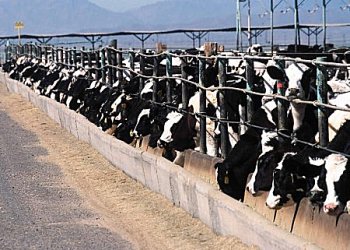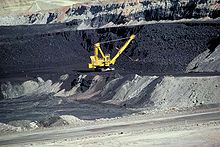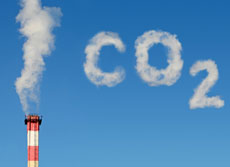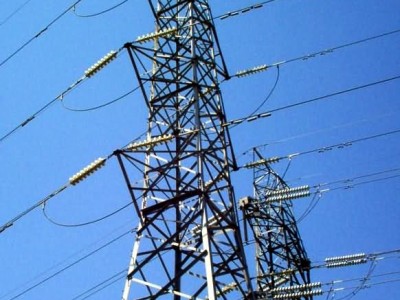Energy
Trump Embraces His Inner Denialist
Nobody loves coal, oil and gas more than Donald Trump.
Donald Trump has pledged to wipe out Obama’s climate change efforts, including the Clean Power Plan and the Paris Agreement. His choice to head the transition team for EPA shows how little his view of climate change has evolved since he tweeted that “the concept of global warming was created by and for the Chinese in order to …
Continue reading “Trump Embraces His Inner Denialist”
CONTINUE READINGEnergy Policies Worthy of Debate
Ten questions to ask Clinton and Trump about energy policy.
As we enter the brief debate season prior to the presidential elections, it is easy to anticipate that we won’t see much time set aside for discussing energy policy. That’s not the case for the graduate students in an energy policy class I am currently teaching at the Goldman School of Public Policy. Last week, …
Continue reading “Energy Policies Worthy of Debate”
CONTINUE READINGCalifornia Enacts Legislation Targeting Short-Lived Climate Pollutants
The statute codifies the goals set by the Governor and ARB
On Monday, Governor Brown signed SB 1383 into law, establishing statewide targets for reducing what are known as “short-lived climate pollutants,” which I have discussed in previous posts. The law requires a 40% reduction in both methane and hydrofluorocarbon gases (HFCs) below 2013 levels, and a 50% reduction in black carbon from 2013 level. Legislators …
Continue reading “California Enacts Legislation Targeting Short-Lived Climate Pollutants”
CONTINUE READINGObama’s Public Lands Conservation Legacy
Progress, but still much more to do
President Obama has gotten some high praise lately from the New York Times editorial board, and this op-ed from Prof. David Brinkley, a presidential historian at Rice noted for his biography of President Theodore Roosevelt. Brinkley compares Obama favorably to Teddy Roosevelt for his conservation legacy. The specific recent actions by President Obama that prompted …
Continue reading “Obama’s Public Lands Conservation Legacy”
CONTINUE READINGThe Downward Political Spiral of a Declining Industry
As the coal industry weakens economically, it also loses political clout.
Tighter regulation contributes to an environmentally dirty industry’s economic decline, which reduces its political clout, which allows more regulation, further weakening the industry. Coal is prime example. The coal industry’s economic plight is well-known. Coal production is the lowest since a major strike 35 years ago. In fact, my colleagues at the business school report that coal …
Continue reading “The Downward Political Spiral of a Declining Industry”
CONTINUE READINGThe future politics of cap-and-trade in California
It doesn’t look so good for the oil and gas industry
As Ann and Ethan both noted, two major pieces of climate legislation were passed by the California legislature this week, and Governor Brown has promised to sign both bills. Overall, the legislation extends the state’s greenhouse gas reduction goals (which were originally to reach 1990 levels of emissions by 2020) out to a 40% reduction …
Continue reading “The future politics of cap-and-trade in California”
CONTINUE READINGThe Clinton Foundation and the Environment
There’s a lot of talk about where the money comes from. But where does it go?
We hear a lot about the Clinton Foundation these days, but it’s all about where the money comes from. That’s outside the scope of this blog, but it made me curious about what they do with the money. In particular, I wondered what they did for the environment. Since the only thing I really knew …
Continue reading “The Clinton Foundation and the Environment”
CONTINUE READINGLibertarian Candidate Endorses a Carbon Fee
Gary Johnson has put his weight behind
In an interview in Alaska, Gary Johnson endorsed the idea of a fee on carbon emissions. Here’s what he had to say, according to E&E News: “Johnson described his “free market approach” to global warming to the Juneau Empire in an interview published this weekend. He said his plan would include a fee, “not a …
Continue reading “Libertarian Candidate Endorses a Carbon Fee”
CONTINUE READINGA Small-Government Approach to Pricing Carbon
We can impose a price on carbon without a tax or emissions trading. Here’s how.
Cap and dividend is a politically appealing idea; put a price on carbon, then refund the money to consumers in equal shares. But conservatives and libertarians object to this idea on two grounds. First, cap-and-trade systems are complex and require a lot of regulatory oversight. Second, if the government collects the money, despite its current …
Continue reading “A Small-Government Approach to Pricing Carbon”
CONTINUE READINGLegal Analysis of CAISO Expansion
We don’t foresee changes to FERC jurisdiction or Commerce Clause validity
The California Independent System Operator — known as CAISO — is considering expanding its footprint to include Pacific Corp as a participating transmission owner. CAISO recently commissioned a study that Professor William Boyd of the University of Colorado and I authored, in consultation with Ethan Elkind of Berkeley and UCLA and Sho Sato Professor …
Continue reading “Legal Analysis of CAISO Expansion”
CONTINUE READING










